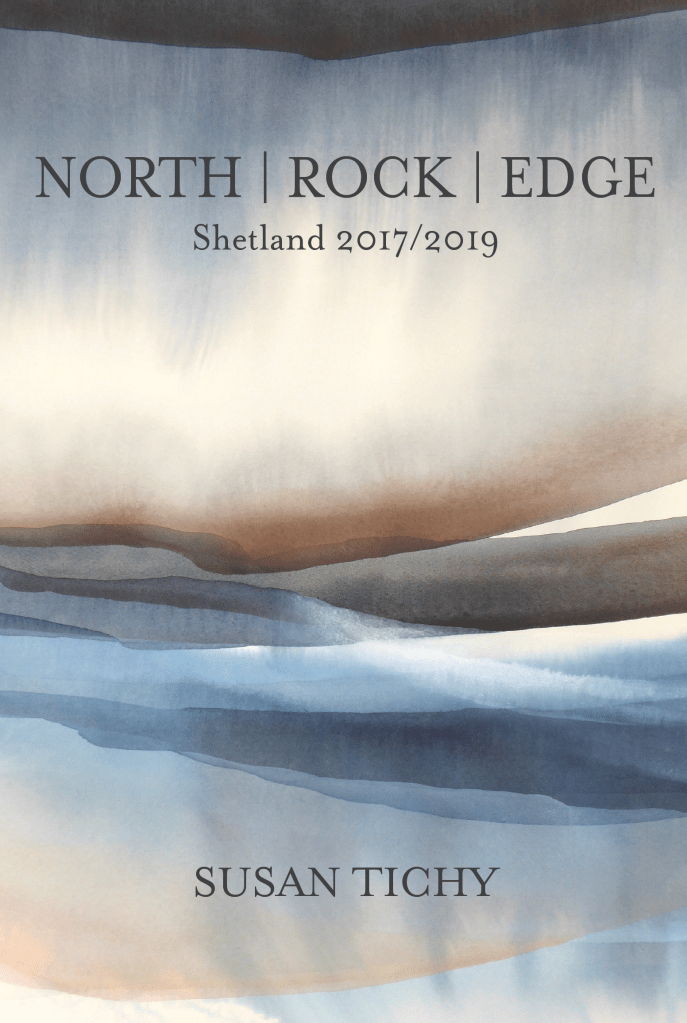North | Rock | Edge is a walker’s encounter with the coasts of Shetland, testing what the lyric can do on the fractal edge between language & a planet’s / broken / openness. In somatic memory of days on foot, in carried shards of rhythm and thought, & in the real time of their composition, the poems voice both landscape & inscape, to altar what we cannot alter, be it the planetary energy of cliffs & waves or the irreversible environmental damages we have authored and now fear.

The Avalanche Path in Summer is a muscle-memory of rock and word laid down in a lifetime of mountain walking, mountain thinking, and a body’s failings. Like the contradictory forces convened in its title, the collection evokes both place and time, history and the rupture of history, where poems resemble the mountains they set before us and whose representation they alternately embrace and disown.
Tichy’s 2015 volume, Trafficke (Ahsahta Press), is also a lifetime-work, a complex interrogation of three hundred years of family history in Scotland and Maryland, tracking and remixing questions of race and identity, fact and legend into a mosaic of verse, lyric prose, and historical narrative. Twenty years in the making, Trafficke was instigated by the life of Tichy’s earliest immigrant ancestor, a Highland Scot transported to Maryland as a prisoner of war in the 1650s and sold into indentured servitude. He died twenty-five years later, the owner of four indentured servants, 1200 acres of what had been Patuxent and Piscataway land, and one enslaved African man.
She is also the author of Gallowglass (Ahsahta, 2010), which takes its title from an Anglicized form of the Gaelic gal-óglac, a foreign soldier or mercenary, and of Bone Pagoda (Ahsahta, 2007), an extended meditation on Vietnam—the country, the war, and the moral catastrophe now signified by this word. Both books are underwritten by her experience as a war protester and as the wife of a combat veteran. Tichy’s first book, The Hands in Exile (Random House, 1983), centered on time spent working on the Golan Heights, was selected for the National Poetry Series and also received the Eugene Kayden Award for Poetry. Her second book, A Smell of Burning Starts the Day (Wesleyan, 1988), resulted from research into human rights abuse in the Philippines during the Marcos years and her subsequent discovery of a family connection to comparable practices during the Philippine-American War of 1899-1902.
Tichy’s poems and mixed-genre works have been published in the US, Britain, and Australia and have been recognized by a grant from the National Endowment for the Arts, a Pushcart Prize, and numerous other awards, including prizes from Beloit Poetry Journal, Indiana Review, and (for innovative prose) Quarter After Eight. In 2019 she retired from thirty years teaching in the MFA and BFA programs at George Mason University. Her thesis advisees have published widely & won both regional & national prizes for their first books, including the Yale Younger Poets Series, the Walt Whitman Award from the Academy of American Poets, the Cleveland State University First Book Prize, the Srinivas Rayopro Poetry Prize (India), & the Washington Writers Publishing House Poetry Prize. She currently serves on the Editorial Board of Poetry Daily.
Except when teaching, she has lived since 1982 in the foothills of Wet Mountains/Sierra Mojada, in a solar cabin she and her late husband built by hand. Those foothills face the Wet Mountain Valley, beyond which lies the Colorado Sangre de Cristo range, an 80-mile fault-block uplift with ten summits over 14,000 feet. She was a founding member of the San Isabel Land Protection Trust (formerly San Isabel Foundation). Now celebrating its 25th year, SILPT has permanently protected more than 42,000 acres in and near the Wet Mountain Valley.
Susan Tichy is a member of Coming to the Table, a non-profit organization that provides leadership, resources, and a supportive environment for all who wish to acknowledge and heal the wounds from racism rooted in the United States’ history of slavery.
Susan Tichy is available for readings, workshops & manuscript consultations. Contact.
PHOTOS: SUSAN TICHY




